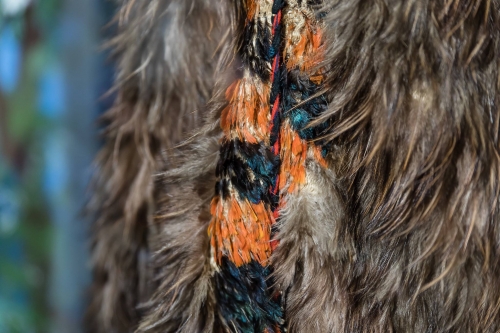

Current filter:

In a rousing session at Central Hawke’s Bay District Council’s Strategy and Wellbeing Committee Meeting last week, Committee Members adopted the Council’s first Māori Engagement Strategy - Tūhono mai Tūhono atū.
Tūhono mai Tūhono atū provides a framework for priorities that contribute toward Council and Tangata Whenua aspirations for Māori cultural development, with a particularly strong focus on recognising culture connects and strengthens communities, instils a sense of pride and identity and improves individual and community health and wellbeing.
“Māori Cultural Development is a priority area for Central Hawke’s Bay District Council - Te Kaunihera ā-rohe o Tamatea,” says Kelly Annand, Deputy Mayor and Chair of the Strategy and Wellbeing Committee.
“Our new Māori Engagement Strategy strategy is a channel to ensure Council continues to consider and promote the current and future opportunities for Māori wellbeing.
“It is a living, breathing document that over time, will become an integral part of the way Council speaks, hears and acts.
“At the establishment of the Strategy and Wellbeing Committee late in 2019, this Committee identified the need to raise the bar of Māori engagement and development as a priority and I’m incredibly excited and proud to see a strategy in support of this this adopted today,” says Deputy Mayor Annand.
“Central Hawke’s Bay District Council is committed to enhancing the partnership it has with iwi, hapu and marae across our District. We’ve been working hard on relationships but now Tūhono mai Tūhono atū represents a more formal step towards where Council want and need to be,” says Alex Walker, Mayor of Central Hawke’s Bay.
Dr Roger Maaka, Kaiārahi Matua of Central Hawke’s Bay District Council, says, “This strategy which has been adopted today is a significant symbol in Treaty partnership.
“In Tūhono mai Tūhono atū I see a very thoughtful document, with one of its strengths being that it covers all bases, representing an entire attitude for this Council.
“It is a forward thinking document which is representative of a respectful and constructive relationship between Tangata Whenua and Council,” continues Dr Maaka.
Committee stood spontaneously for Waiata following the adoption of the Strategy.
Developed over five months with the support of Te Taiwhenua o Tamatea, the adoption of Tūhono mai Tūhono atū follows the Council’s recent amendment to its Māori Contribution to Decision Making Policy, which now reflects a clear direction that Māori engagement and development be a priority.
Targeted within four pou, Tūhono mai Tūhono atū considers objectives that:
The four pou of Tūhono mai Tūhono atū are:
“As a Council, we recognise the special and unique position of Tangata Whenua o Tamatea and the vital role Māori have to play in Council's decision making processes,” says Mayor Walker.
“Section 14 of the Local Government Act 2002 requires all councils to ensure there are specific opportunities for Māori to contribute to decision-making processes and Central Hawke’s Bay District Council take this seriously.”
1 September 2020
Disclaimers and Copyright
While every endeavour has been taken by the Central Hawke's Bay District Council to ensure that the information on this website is
accurate and up to date, Central Hawke's Bay District Council shall not be liable for any loss suffered through the use, directly or indirectly, of information on this website. Information contained has been assembled in good faith.
Some of the information available in this site is from the New Zealand Public domain and supplied by relevant
government agencies. Central Hawke's Bay District Council cannot accept any liability for its accuracy or content.
Portions of the information and material on this site, including data, pages, documents, online
graphics and images are protected by copyright, unless specifically notified to the contrary. Externally sourced
information or material is copyright to the respective provider.
© Central Hawke's Bay District Council - / +64 6 857 8060 / customerservice@chbdc.govt.nz